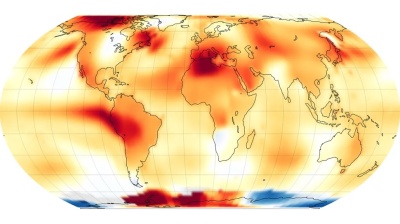Hungary’s battery manufacturing sector, heralded as a pillar of the manufacturing sector, has posted combined annual losses of nearly $112mn, as weakening global demand and shifting trade dynamics hit the industry hard.
Production levels at the country’s two major battery producers, South Korea’s SK Group and Samsung SDI, have been in steady decline since 2023, according to recent company filings and industry data cited by local media. Total revenues for the sector dropped 21% to HUF2.5 trillion (€6.2bn), with sharp contractions reported at SK’s Komarom plant (-36%) and Samsung’s God facility (-20%).
Net sales of Samsung SDI fell 37% to €4.4bn, and the bottom line showed a loss of €58.5mn for 2024, reversing a net profit of €74.6mn a year earlier. SK Group reported revenue of $985mn in 2024, compared with $1.14bn in 2023. The company recorded a financial loss of $53.1mn, compared with a $18mn profit in 2023.
The financial performance of South Korean battery manufacturers operating in Hungary reflects the impact of a global slowdown in the electric vehicle (EV) market, coupled with rising cost pressures and intensifying competition from Chinese rivals, financial website Portfolio.hu added.
The financial fallout has triggered mass layoffs, with hundreds of workers already dismissed from Samsung SDI’s two Hungarian factories (Ivancsa and God). Reports suggest that companies are staggering firings in groups of 29 to avoid mandatory notification of large-scale redundancies.
The deterioration comes despite the Orban administration having channelled more than HUF1.5 trillion subsidy into battery-related investment, positioning Hungary as a key EU hub for EV supply chains. But that bet has become increasingly risky due to slow progress on green transition policies, growing geopolitical uncertainty, including Donald Trump’s unpredictable trade positions, and a wider decline in demand for electric vehicles.
Economic Development Minister Marton Nagy has since signalled a pivot, acknowledging the need to refocus state support toward other sectors and higher support for SMEs. However, the scale of losses has raised questions over the long-term viability of the strategy. Government officials maintain, however, that the downturn is temporary and argue that the electric vehicle transition is likely to accelerate in the near future.
News

Kremlin does not rule out Putin meeting with Trump envoy in Moscow
The Kremlin has not ruled out the possibility of a meeting between Russian President Vladimir Putin and US President Donald Trump's special envoy Stephen Witkoff this week.

Several missing as flash floods hit 70 residential areas and 34 homes in Russia's Krasnodar region
Torrential rains in Russia's Krasnodar region have flooded 70 residential areas and 34 homes in the villages of Defanovka.

EABL profit rises to $94.30mn amid looming alcohol law changes in Kenya
East African Breweries PLC (EABL) posted a net profit of KES 12.198bn ($94.30mn) for the year ended June 30, 2025.

Egypt allocates $123.6mn for first phase of strategic Libya land connection
Egypt's government has allocated EGP 6bn ($123.6mn) for the implementation of the first phase of a strategic land connection project with Libya.




